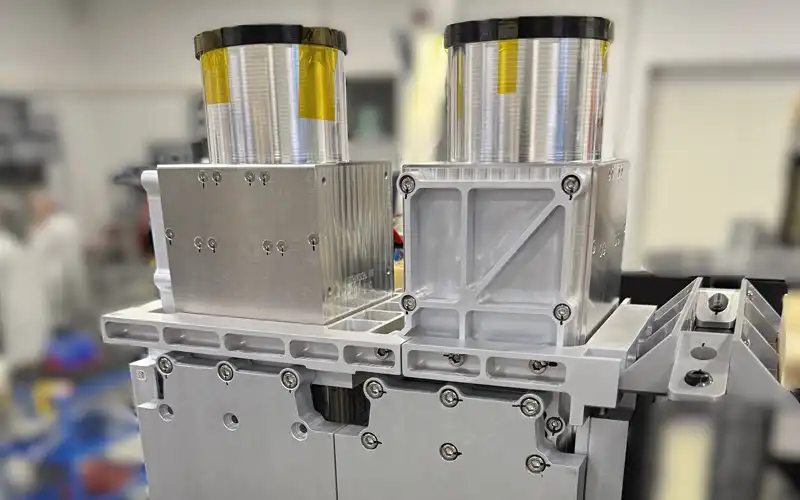
UK-based in-space propulsion company Magdrive has announced the closure of a $10.5 million (€9.99 million) seed round to advance its high-thrust electric propulsion technology.
Founded in 2019, Magdrive is developing a range of high-thrust electric propulsion systems for satellites and spacecraft. The company is currently working toward an initial test flight of its Rouge thruster aboard a D-Orbit mission in June. Rouge is the smallest of the three propulsion systems under development.
In a 25 February update, Magdrive announced that it had raised a $10.5 million seed round, bringing its total funding to $22.5 million (€21.44 million). This total includes $10 million in grants received from the UK government, the UK Space Agency, and the European Space Agency since its founding. The seed round was led by VC firm Redalpine, with participation from Balerion, Alumni Ventures, Outsized Ventures, 7percent, Entrepreneur First, and existing investor Founders Fund.
“Magdrive’s technology has tremendous potential to change the game in spacecraft propulsion to solve big pain points in the status quo, including manoeuvrability and longevity,” said Redalpine General Partner Harald Nieder. “Propulsion is literally driving the emerging space economy.”
According to Magdrive, it will use the $10.5 million in new funding to continue the development of its high-thrust electric propulsion systems, build a manufacturing facility in the United Kingdom, and establish an office in the United States.
The company states that its propulsion systems use “solid metal as propellant,” which can be “sourced and refueled from recycled ‘space junk’ or other in-space sources.” This capability is a key element of its broader ambition to scale up its propulsion system for use in in-space servicing spacecraft, large-scale constellation management, and interplanetary travel.

